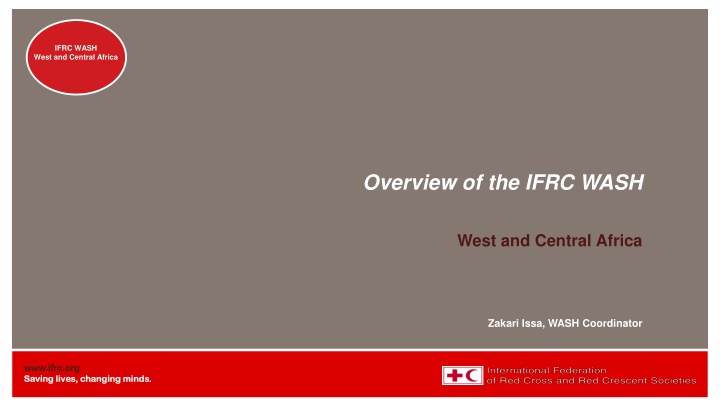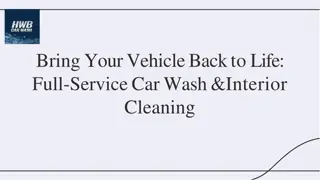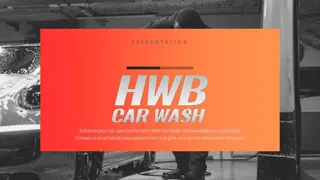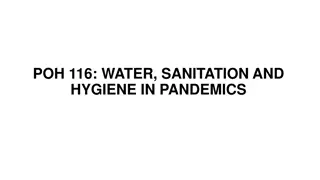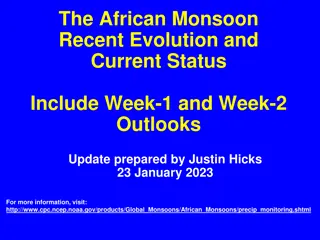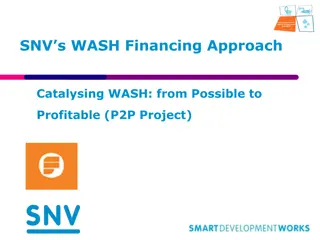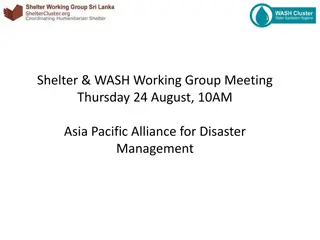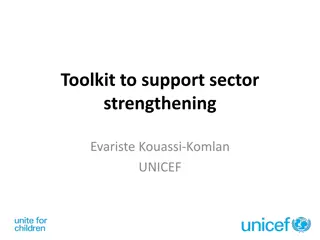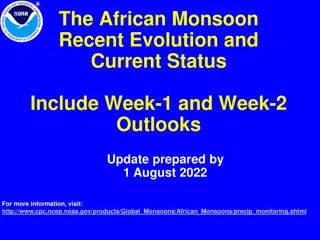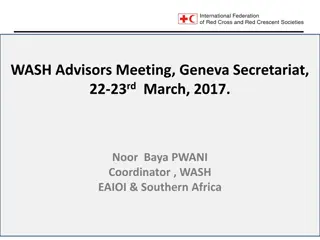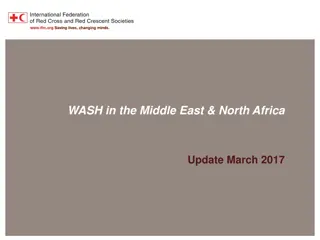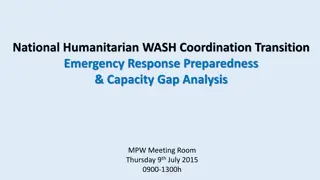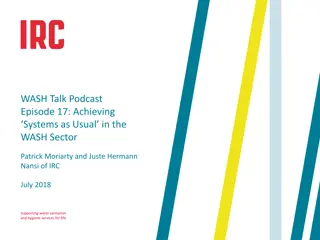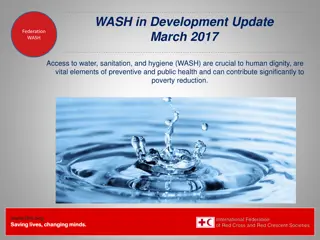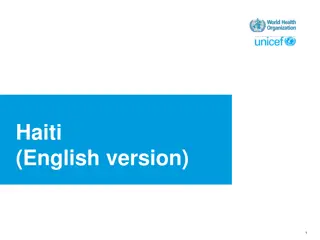Challenges and Opportunities in IFRC WASH Programs in West and Central Africa
Disparities and complexities persist in IFRC WASH programs in West and Central Africa, with challenges such as volatile working environments, unstable National Societies structures, and limited capacity. Opportunities include networking with key institutions and sector leads, as well as the need for a rethinking of Resource Mobilization in the WASH sector to ensure sustainability and long-term projects. Funding streams and HR mapping databases also play crucial roles in advancing these programs.
Download Presentation

Please find below an Image/Link to download the presentation.
The content on the website is provided AS IS for your information and personal use only. It may not be sold, licensed, or shared on other websites without obtaining consent from the author.If you encounter any issues during the download, it is possible that the publisher has removed the file from their server.
You are allowed to download the files provided on this website for personal or commercial use, subject to the condition that they are used lawfully. All files are the property of their respective owners.
The content on the website is provided AS IS for your information and personal use only. It may not be sold, licensed, or shared on other websites without obtaining consent from the author.
E N D
Presentation Transcript
IFRC WASH West and Central Africa West and Central Africa IFRC WASH Overview of the IFRC WASH West and Central Africa Zakari Issa, WASH Coordinator www.ifrc.org www.ifrc.org Saving lives, changing minds. Saving lives, changing minds.
content IFRC WASH West and Central Africa General Overview: Opportunities and challenges Emergency Roster Way forward www.ifrc.org www.ifrc.org Saving lives, changing minds. Saving lives, changing minds.
IFRC WASH West and Central Africa www.ifrc.org www.ifrc.org Saving lives, changing minds. Saving lives, changing minds.
IFRC WASH West and Central Africa www.ifrc.org www.ifrc.org Saving lives, changing minds. Saving lives, changing minds.
IFRC WASH West and Central Africa www.ifrc.org www.ifrc.org Saving lives, changing minds. Saving lives, changing minds.
Opportunities and challenges IFRC WASH West and Central Africa Disparities and complexities continue to be latent: volatile working environment (migration, epidemics, flood, malnutrition, volatility of peaceful living environment: de-structuration of government authority, population movement, variability of geographical and climatic conditions); unstable NS structures; insufficient HR/support from IFRC All NS are engaged in WASH implementation(most in Emergency) but still with very limited capacity Networking with high level institutions and sector leads: River basin authorities, AMCOW, WSA, UNICEF,; with Academia and professional bodies: WEDC, BIOFORCE, RWSS, etc. www.ifrc.org www.ifrc.org Saving lives, changing minds. Saving lives, changing minds.
IFRC WASH West and Central Africa RM in the WASH sector need rethink: multi sectoral/flagship long-term projects; Sustainability of funding; new global strategic direction completed We expect Funding streams for developmental/flagship to further increase as well projects to be open ended between now and 2020 Keeping up to date HR mapping database: need some level of sustainability www.ifrc.org www.ifrc.org Saving lives, changing minds. Saving lives, changing minds.
Emergency roster IFRC WASH West and Central Africa Most deployment requests are related to the WASH and shelter HR while only 29% are trained in general RDRT WASH No RDRT trained as RDRT WASH in epidemics context as at now www.ifrc.org www.ifrc.org Saving lives, changing minds. Saving lives, changing minds.
Looking forward to IFRC WASH West and Central Africa Going at scale: linking achievements to SDGs need innovative approach new IFRC WASH strategic direction and its implementation PoA Sustainability for our developmental efforts and support? Seed funding needed: Expanding flagships and HR; visibility/communication/engaging partnership and coordination; www.ifrc.org www.ifrc.org Saving lives, changing minds. Saving lives, changing minds.
Questions? IFRC WASH West and Central Africa www.ifrc.org www.ifrc.org Saving lives, changing minds. Saving lives, changing minds.
